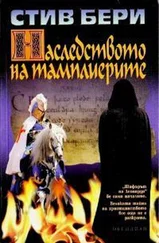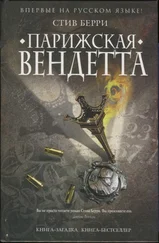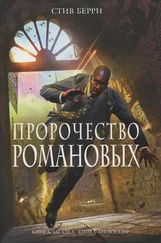Outside on the sun-blanched street, he swiped his brow with his hand.
“Only one thing left to do,” Cassiopeia said. “Like the woman said, south on highway N6 to Nohana.”
He stared up at the stark sky. Heat seemed to settle all around him like a lid to a boiling pot. Not unlike middle Georgia, in summer, from his teenage years.
“I hope the mountains really are cooler.”
CHAPTER FORTY-ONE
SCHLÖSS HERZOG, BAVARIA
12:30 P.M.
Marie slipped her arms into the jacket and finished dressing. Last night she’d done something she’d never done before.
She locked the door to her room.
For over a decade she and Kurt had lived together, but separately, each content with their distance. But sometime after midnight, amid a clatter of thunder and the patter of a summer rain, she’d slipped out of bed and locked the door. At first she thought it all a dream, her senses drifting from what was perceived to what was real.
Why do such a thing?
In her state of semi-awareness she’d slipped back a quarter century, to a time when she and Kurt once enjoyed each other. When love and passion were an element of their relationship that both of them seemed to cherish. Yet so much had happened since. And particularly yesterday. She could still feel his tight grip on her arm.
They tried for years to have a baby.
Finally, testing revealed that it was a mutual issue. He was low on sperm, she was incapable of producing viable eggs. Science had not progressed to the point of today, and by the time it had, they were too old to be having children.
She’d many times thought that loss began their decline.
Perhaps.
Or maybe they should have never been together from the start.
Kurt was the first man she’d ever given herself to, and he would be the last. She was seventy-four years old, way past what anyone would consider the prime of life. Not old. Not finished. But definitely tired. Yet now, staring at herself in the mirror, she concluded that time had certainly been kind, somehow sparing her the indignity of a bulging midline and skin marred like creases in a crumbled sheet of paper. Physically she’d weathered life well. Emotionally depended on the time of year.
June was perennially her month of renewal.
She should have probed Kurt yesterday and found out why he treated her with such contempt, query him on his anger and bitterness, perhaps even try to understand his resentment of all things foreign.
But as always, she’d kept silent.
When she woke this morning she’d quickly unlocked the door, ashamed of herself for being so mistrustful.
Thankfully, no one had noticed her transgression.
A light rap brought her mind back to the present.
She heard the bedchamber door open, then close.
She stepped from the closet and saw Kurt crossing the parquet floor toward her. He was dressed in a striking three-button Zanetti suit with a white Charvet shirt and a Façonnable silk tie.
“I wanted to apologize for yesterday,” he said. “It was inappropriate what I did, speaking that way and grabbing hold of you.”
She appreciated the concession but had to say, “Yes, it was. On both counts.”
“It won’t happen again.”
She could see that he was being sincere.
“You look lovely,” he said.
She’d dressed conservatively, choosing a navy tailored jacket, pleated skirt, and ivory silk blouse. Back to the campaign trail today.
“Is the rain gone?” she asked, trying to make some sort of small talk.
“I was just outside. Sunny and warm. The skies are clear.” He, too, seemed to be searching carefully for the right words.
She found the situation puzzling. They were behaving like two adolescents after their first date. In one sense it was comical, in another tragic.
She approached her jewelry cabinet and found a string of Mikimoto pearls, a present from Kurt one Christmas decades ago.
“Let me help you,” he said.
He stepped close and she caught the familiar miasma of his aftershave, pipe tobacco, and cloves from the gum he loved to chew. He moved behind her and reached across her shoulders, gently clipping the pearls around her neck. He then softly kissed the skin below her right ear. Her eyes closed at the gesture. She was glad he could not see her reaction.
Enough.
She stepped away and faced him.
“What is all this?” she asked both him and herself.
“A husband showing his wife affection.” There was a caressing quality to his tone that she did not like.
“After yesterday?”
“For which I just apologized.”
“Which I thanked you for. But that doesn’t change what happened.”
He clasped his arms behind him and stood straight like a warrior. A wave of apprehension shuddered through her.
Here we go again.
“Marie, we are both old. Time is slipping away from us. Perhaps, before we die, we should try to forget politics, to forget our differences, and enjoy what little life we have left.”
“I’ve never known you to possess a death wish. You are quite healthy and could live another twenty years.”
“No, Marie. I can breathe for another twenty years. Living is an entirely different matter.”
“What is it you want, Kurt? Can’t you understand why I’m perplexed?”
He lowered his head and stepped close to the window. There was a boyish attitude about him that seemed at odds with his grown-up intentions. He seemed a man in a quandary, and she desperately wanted to understand his dilemma.
“Marie, you are perhaps about to become the longest-serving leader of this nation. Have you truly comprehended what that would entail?”
“I don’t want to have a philosophical debate with you.”
“Neither do I. But I do want us to face reality. We are at a crossroads. You and I. The culmination of your entire life may occur in the next few weeks.”
“ May? Perhaps? About? So nice to hear the confidence my husband has in my chances of winning.”
The corners of his lips turned down. “I meant no disrespect. Of course I want you to win.”
“That’s the first time I’ve heard you say that.”
“I am not your enemy.”
She wanted to believe him, but years of rebuke and the numbing agony of his prejudices had erected unassailable barriers. Strangely, while her marriage faltered, her political career had prospered. She’d found ambition a powerful barbiturate, dulling everything, including caring. The man standing before her, casting a façade of aristocracy, was in many ways unknown to her. But unlike him, she’d not abandoned her conscience.
And she remained highly suspicious.
Why? She could not say.
“You say you’re not my enemy. Who is, Kurt?”
His face registered nothing at the inquiry, and he seemed to be searching for the right words. For an instant she sympathized with Germans who’d once faced her identical dilemma. Families wary of one another. Not knowing who, or when to trust. A collective paranoia, encouraged by authority, that, in the end, paralyzed the nation. What was it Martin Bormann once said?
Fear is necessary.
Kurt’s eyes narrowed and hardened like iron. “The answer to your inquiry is quite simple. You have no need for enemies. You play that role for yourself with perfection.”
He turned for the door.
And left.
CHAPTER FORTY-TWO
FREE STATE, SOUTH AFRICA
2:00 P.M.
Cotton was surprised by Nohana. He’d half expected a desolate frontier hamlet, full of poverty and dilapidated buildings, but instead the town was a bustling center of nearly ten thousand people, dotted with trendy art shops featuring local Basotho crafts. A number of the stores catered to the nearby cherry and asparagus farmers. There was also a tinsmith, tobacco shop, and two churches, one Dutch, the other Anglican. The Red Mountains offered a spectacular backdrop to the sandstone architecture, gleaming in the sun as if made of metal. The peculiar tone of native music, coming from a band playing in the main square, added a festive atmosphere.
Читать дальше












